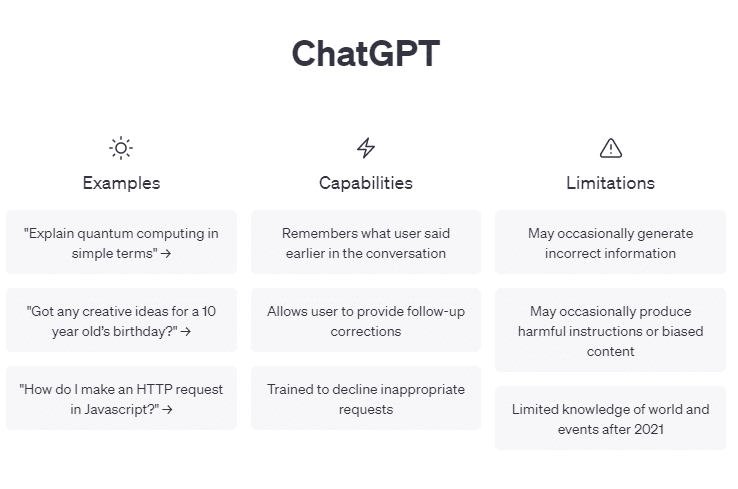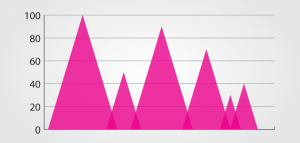The thought of being able to type a single idea into an AI text generator and having a blog post created for you in seconds sounds compelling…but is it really a good idea?
Will artificial intelligence be able to add the value that a creative, breathing human adds to each piece they write?
And what about Google?
Will the arbiter of all things SEO be able to distinguish between content generated by a machine and material written by humans?
In this blog, you’ll learn:
Download this post by entering your email below
What Does It Mean to Have Content Generated by Artificial Intelligence?
AI (artificial intelligence) is the ability of machines to perform tasks that would typically need human intelligence.
Such tasks include understanding language, recognizing images, learning from statistics, and making decisions.
This creates significant potential for AI to benefit people and society in many industries, such as healthcare, education, and security.
Turning our attention toward Google, there’s no doubt that this massive organization is embarking on a mission to organize the world’s information, making it universally accessible and useful for a broad range of applications.
To make this a reality, Google has already deeply invested in AI and machine learning (ML) in research and product development.
Google and its subsidiary DeepMind are making progress in computer science and technology creation that will add value to the daily life of users worldwide.
Why Doesn’t Google Search Ban AI Content?
One of the most remarkable examples of Google’s AI innovation is LaMDA, short for Language Model for Dialogue Applications.
LaMDA is a large language model capable of generating natural, logical, and reasonable responses to any conversational inquiry with information found on the web and other sources.
As impressive as Google’s advancements in AI are, critics have raised social, ethical, and legal concerns regarding large language models.
These concerns include potentially harmful content generation, such as fake news and hate speech, and worries about large language models replacing human intelligence, creativity, and autonomy.
There are also questions about the validity and reliability of these models, as they may not accurately reflect human values or reality.
Biased, inaccurate, or offensive AI content has raised concerns about large language models like the third-generation Generative Pre-trained Transformer (GPT-3).
This neural network model generates text based on web searches, but may not have the cultural context to inject into its writing.
For example, GPT-3 demonstrated biases and inconsistencies in its responses when generating text, while an engineer at Google claimed their AI technology was conscious and argued that Google was exploiting its AI agents for profit.
Given these challenges and risks, how will Google treat AI-generated content? Will Google penalize AI content that is harmful, misleading, or low quality? How will Google ensure that generated AI content is safe, trustworthy, and beneficial for users and society?
What Is AI Content and How Is It Created?
AI content is any digital content generated or enhanced by artificial intelligence.
This can include text, images, video, audio, and even interactive elements.
This allows the use of AI for diverse purposes, such as education, marketing, entertainment, and journalism.
If you’re wondering how this works, it’s accomplished by leveraging various methods to influence the power of machine learning and natural language processing.
Some of these techniques and tools include the following.
Content generation
Content generation uses AI to produce original content from scratch or a given input or instruction.
For example, AI can write blog posts, captions, headlines, summaries, stories, and poems by inputting appropriate keywords, topics, or prompts.
Content optimization
This is the use of AI to improve the quality and performance of existing content. It is the use of AI to fine-tune any content produced without AI.
For example, AI can rewrite, edit, proofread, paraphrase, or translate content to make it more engaging, relevant, accurate, or SEO-friendly.
Content personalization
AI tools can modify content to the preferences and needs of specific audiences or individuals.
For instance, AI can customize content based on user data, behavior, location, interests, and goals.
Content analysis
This is the use of AI to source insights and information from content. For example, AI can analyze content for sentiment, tone, readability, keywords, topics, and trends.
As artificial intelligence technology continues to advance, the popularity and accessibility of AI-generated content are on the rise.
AI-generated content has numerous advantages for both content creators and consumers, including time and cost savings, improved productivity and creativity, enhanced user experience and satisfaction, and other benefits.

How Does Google Detect and Evaluate AI Content?
AI content is used for various purposes, such as blog posts, product descriptions, and social media captions, in addition to more technical applications, such as text summarizations and programming code.
However, it poses challenges for search engines like Google in terms of quality, relevance, and reliability of information served to users.
Google has therefore designed methods to detect and evaluate AI content, which includes:
Natural language processing (NLP): This algorithm allows Google to analyze text for patterns and syntax commonly found in computer-generated write-ups.
E-E-A-T guidelines: Google also utilizes the E-E-A-T (Expertise, Evidence, Authoritativeness, and Trustworthiness) guidelines to grade the quality of content on websites. These guidelines require authors to have expertise and experience in their subject, provide evidence and sources to support their claims and be transparent about who they are and how to contact them.
Google also evaluates the details of any AI-generated work based on groundedness in real-world information and safety for users and society.
Advantages and disadvantages of Google detection and evaluation
Google’s detection and evaluation methods have some advantages and limitations.
Some of the advantages are:
- Ensure high standards of accuracy, relevance, and reliability for the information that Google provides to users.
- Prevent low-quality or malicious AI content from ranking well or influencing users’ decisions.
- Encourage human authors to create high-quality, original content that meets users’ needs and expectations.
Some of the limitations are:
- They can be biased or incomplete due to the data or algorithms that Google uses to detect and evaluate AI content.
- They can be outdated or inaccurate due to online information’s fast-paced and dynamic nature.
- Sophisticated AI systems can mimic human writing styles or evade detection, circumventing Google.
Therefore, Google’s detection and evaluation methods are not perfect or foolproof. They are constantly evolving and improving as technology advances and user behavior changes. However, they are still valuable and necessary tools for ensuring the quality and integrity of online information.
Will Google Penalize AI Content?
Google’s automatically generated content policy has stated that Google is—and always has been—against fraudulent content and content incapable of benefiting readers.
Google can tell if the content is high quality or not. However, AI is highly capable of writing fantastically or poorly—it depends on the AI writer and on what subject you give it.
Therefore, the answer to whether Google will penalize AI content is twofold.
Google will penalize AI content if you don’t add value.
Google will penalize AI content if you incessantly use copy-and-paste on meaningless AI-written content with no direction and no apparent value for the user to benefit from.
It can be surprising how AI can create content that defies logic. Therefore, you should always proofread and edit your content and ensure your facts, tone, and grammar are not erratic before posting to your blog or site.
Focus on the benefit to the reader, and Google will not penalize AI content.
If you can ensure your content is highly valuable to your users, Google will not penalize the AI content. Focus on reviewing the content throughout the writing process, making tweaks, and ensuring a high degree of accuracy with any content generated via AI.
Always ask yourself one question when posting any content: “Will this content add true value for my target audience and the world?” If the answer to this question is yes, there’ll probably be no penalty to your content.
Final Verdicts About AI-Generated Content
Google does not employ a specific policy against AI-generated content, but the search giant certainly has a policy against automatically generated content that’s deceitful or manipulative.
Google won’t penalize websites that intend to use AI to produce valuable and relevant content demonstrating expertise, experience, authoritativeness, and trustworthiness.
However, websites that utilize tech to create low-quality or deceitful content with the primary purpose of manipulating rankings in search results or misleading users cannot escape the penalties Google will enforce on them.
Therefore, the content’s quality and purpose are more important than the method of creation.
If you are tired of creating content that doesn’t perform well, you’re in the right place.
At Rock Content, we offer AI-powered technology to help you create high-quality content that Google won’t punish.
Learn how we connect human creativity with AI efficiency to get the best results!


![[ROCK NA] [EBOOK SEO] Complete Guide](https://rockcontent.com/wp-content/uploads/2024/06/banner_Search-Engine-Optimization.png)






